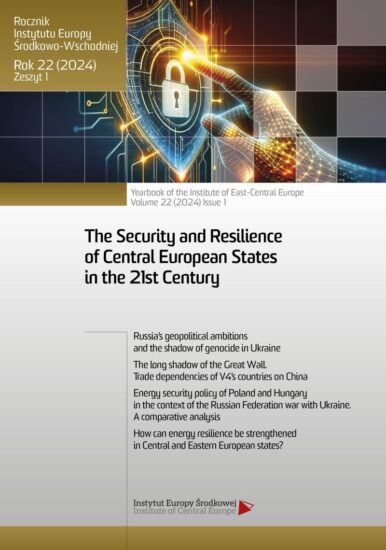Russia’s geopolitical ambitions and the shadow of genocide in Ukraine
Views count: 66
This concise paper examines Russia’s aggression towards Ukraine and its implications for Western democracies. Divided into four sections – The Importance of Ukraine for the International Position of the Russian Federation, The Context of Russia’s Relations with the European Union, The Russian Federation’s Revisionism in the International Arena, and Genocide as an Element of Russia’s Imperial Policy – the analysis highlights the ongoing full-scale war between Russia and Ukraine, which has escalated in the past two years as part of a decade of Kremlin-driven aggression. This conflict reflects Vladimir Putin’s ambition to restore Russian imperial influence, focusing on regaining control over its periphery in Eastern Europe through military intervention. The paper argues that Russia’s actions threaten not only Ukraine but also European stability and democracy. Integrating Ukraine into the European Union is identified as essential for enhancing regional security and countering Russian expansionism. By addressing Russia’s imperialistic goals and emphasising the need to support Ukraine, this paper calls for a unified Western response to safeguard a secure and democratic Europe.
T. Stępniewski, Russia’s geopolitical ambitions and the shadow of genocide in Ukraine, „Rocznik Instytutu Europy Środkowo-Wschodniej” 22 (2024), z. 1, s. 7-15, DOI: https://doi.org/10.36874/RIESW.2024.1.1
- Ash T. et al., How to End Russia’s War on Ukraine: Safeguarding Europe’s Future, and the Dangers of a False Peace, London 2023, DOI: 10.55317/9781784135782.
- Bernsand N., Törnquist-Plewa B. (eds.), Cultural and political imaginaries in Putin’s Russia, Leiden–Boston 2019.
- Everts S., Navigate a power political world, The European Union Institute for Security Studies, 2024, https://www.iss.europa.eu/content/navigating-power-political-world [28.08.2024].
- Frye T., Weak Strongman: The Limits of Power in Putin’s Russia, Princeton 2021.
- Götz E., Staun J., Why Russia attacked Ukraine: Strategic culture and radicalized narratives, “Contemporary Security Policy” 2022, vol. 43, no. 3, pp. 482–497.
- Jankowski D.P., Stępniewski T. (eds.), The 2024 NATO Summit: Priorities for Transatlantic Security, IEŚ Policy Papers, no. 1, Lublin 2024.
- Kolstø P., Blakkisrud H. (eds.), Russia Before and After Crimea: Nationalism and Identity, 2010–17, Edinburgh 2018.
- Lachowski T., Stępniewski T., Russia’s War on Ukraine: Geopolitics, International Law, and Genocide, Prace IEŚ, no. 10, Lublin 2023.
- Polyakova A. et al., A New Vision for the Transatlantic Alliance: The Future of European Security, the United States, and the World Order after Russia’s War in Ukraine, 30 November 2023, https://cepa.org/comprehensive-reports/a-new-vision-for-the-transatlantic-alliance-the-future-of-european-security-the-united-states-and-the-world-order-after-russias-war-in-ukraine/ [23.07.2024].
- Rotfeld A.D., Porządek międzynarodowy. Parametry zmiany, “Sprawy Międzynarodowe” 2014, vol. 67, no. 4, pp. 31–54.
- Sakwa R., Frontline Ukraine. Crisis in the Borderlands, London–New York 2015.
- Tsygankov A.P., Russia’s Foreign Policy. Change and Continuity in National Identity, Lanham 2010.


